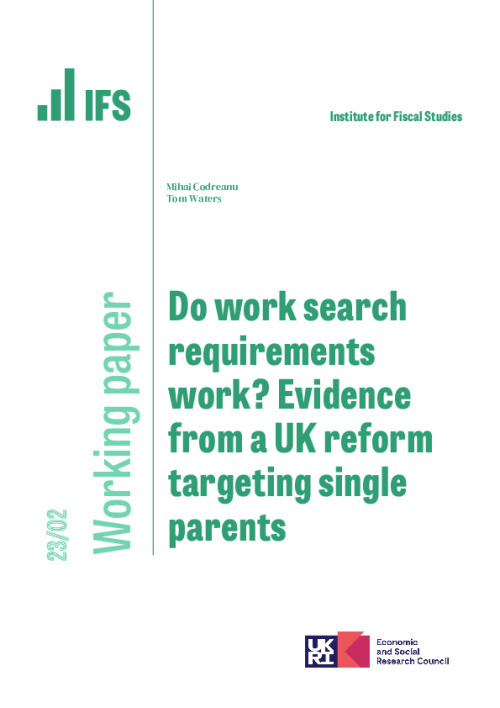Proponents of work search requirements for out-of-work welfare claimants argue they are effective in inducing individuals to work and delivering fiscal savings. In this paper, we provide a much more comprehensive assessment than has been available to date, exploiting a UK reform introducing full-time work search requirements for single out-of-work parents. Using the policy’s staggered roll-out, we show that the reform reduced the number of single parents claiming welfare by a quarter, partly by discouraging eligible individuals from beginning a claim in the first place. However, only about half of the reduction in the number of claimants is explained by higher employment, and almost all of that is in part-time, low paid jobs – the median marginal job pays around the 13th percentile of the UK earnings distribution, so even those that get into work pay little in tax and receive significant (in-work) transfers. Most of the rest of the effect is accounted for by individuals substituting to – more generous – incapacity and disability benefits. As a result, the policy produces fiscal savings indistinguishable from zero. Furthermore, we find negative effects on the mental health of individuals who remained out-of-work, though positive effects for those pushed into work.










